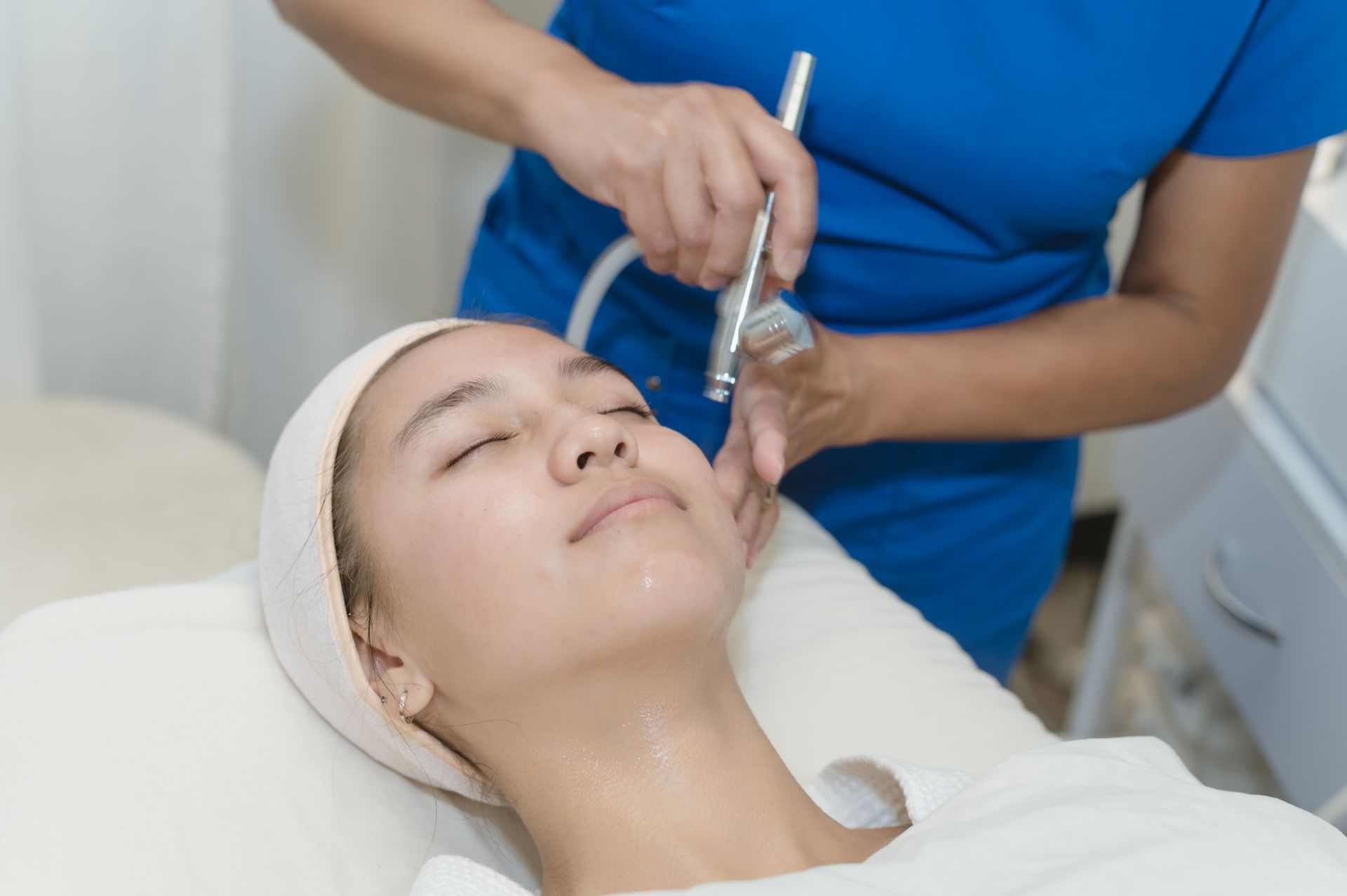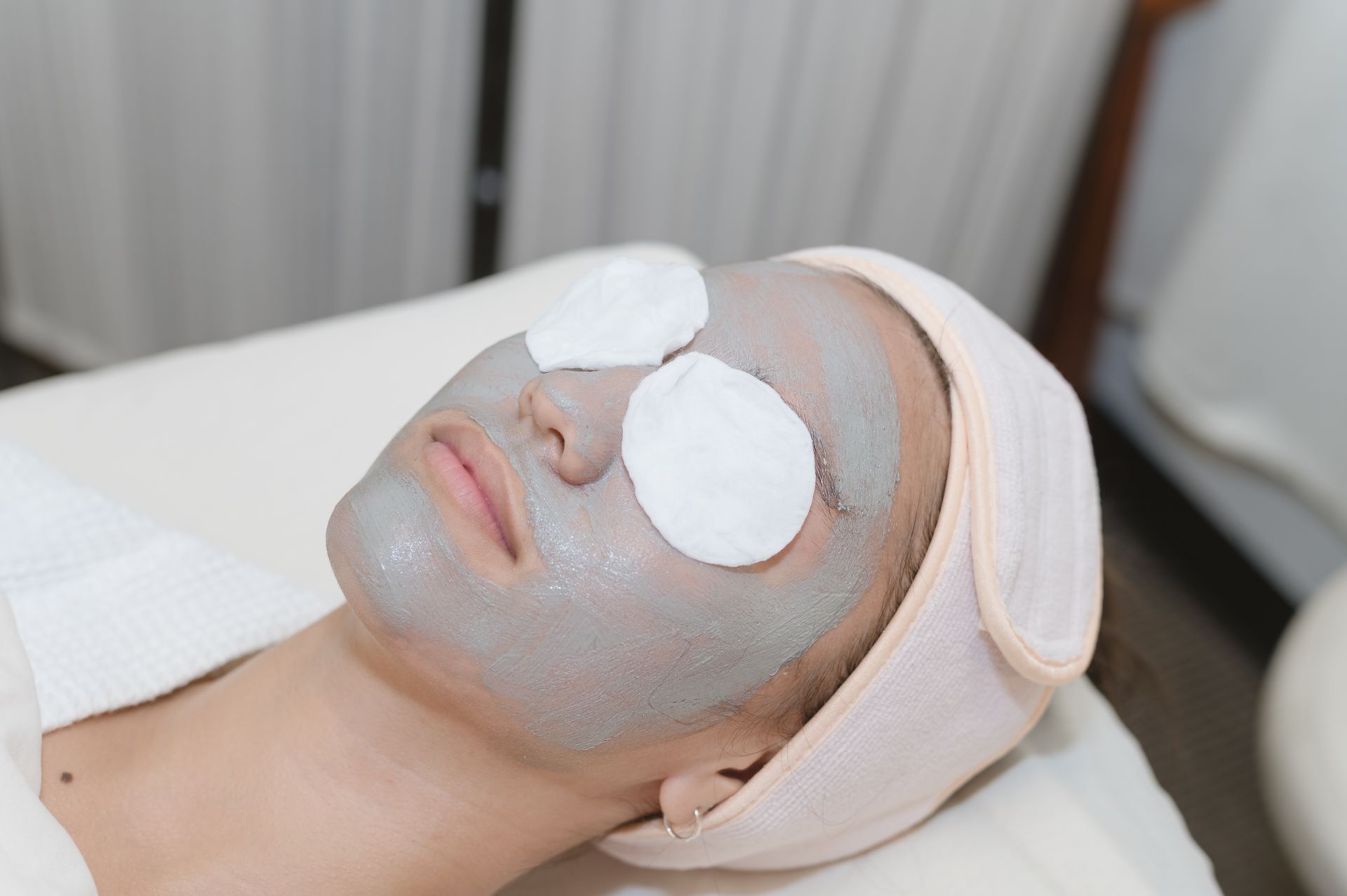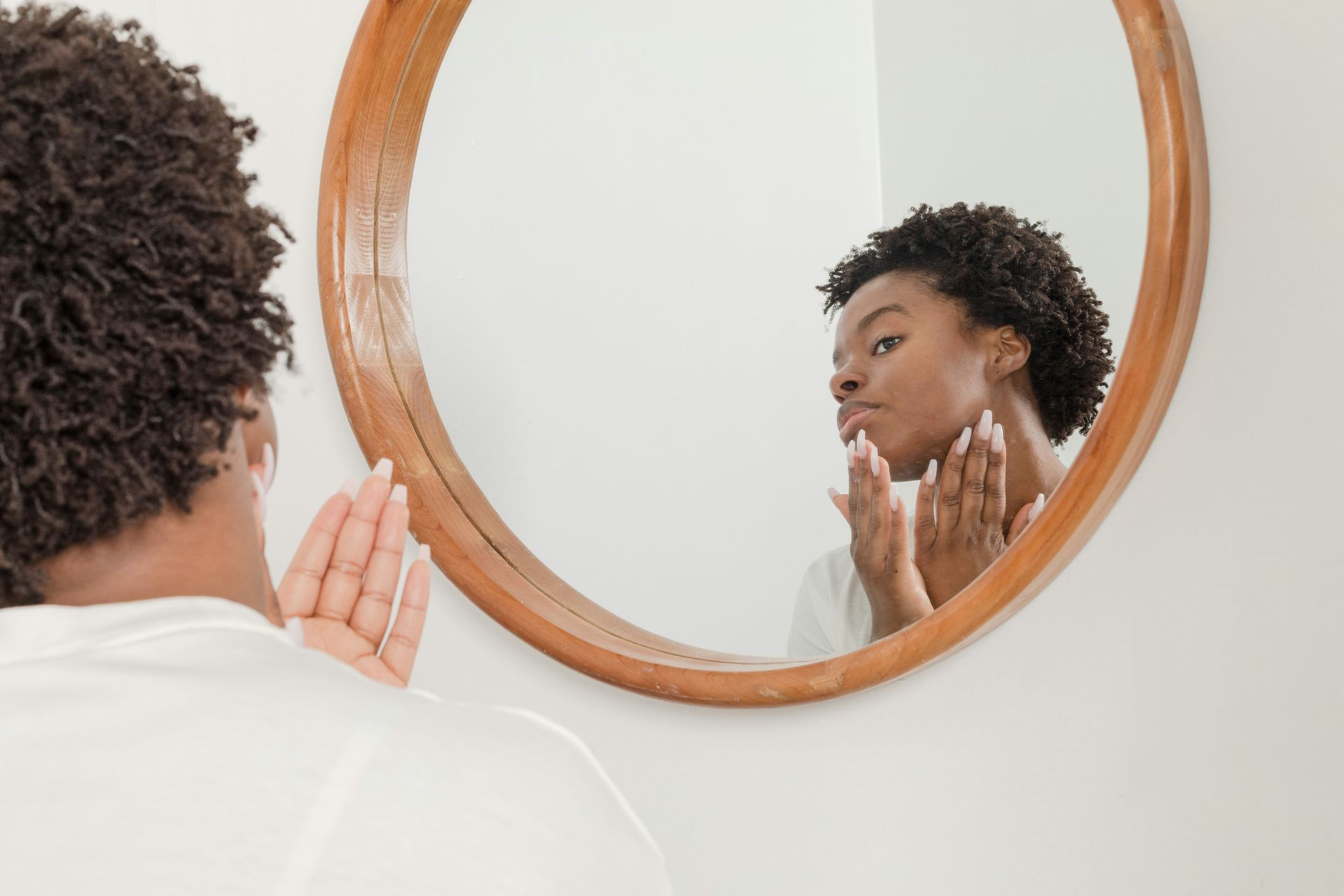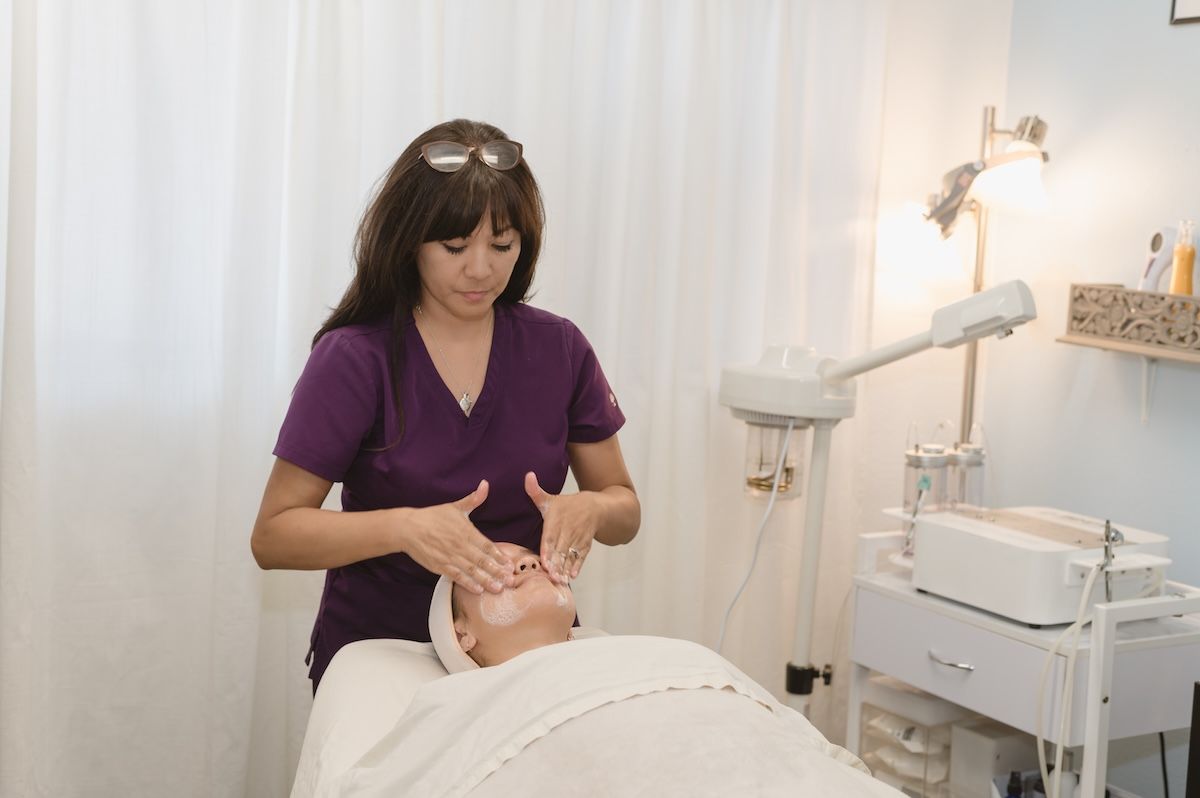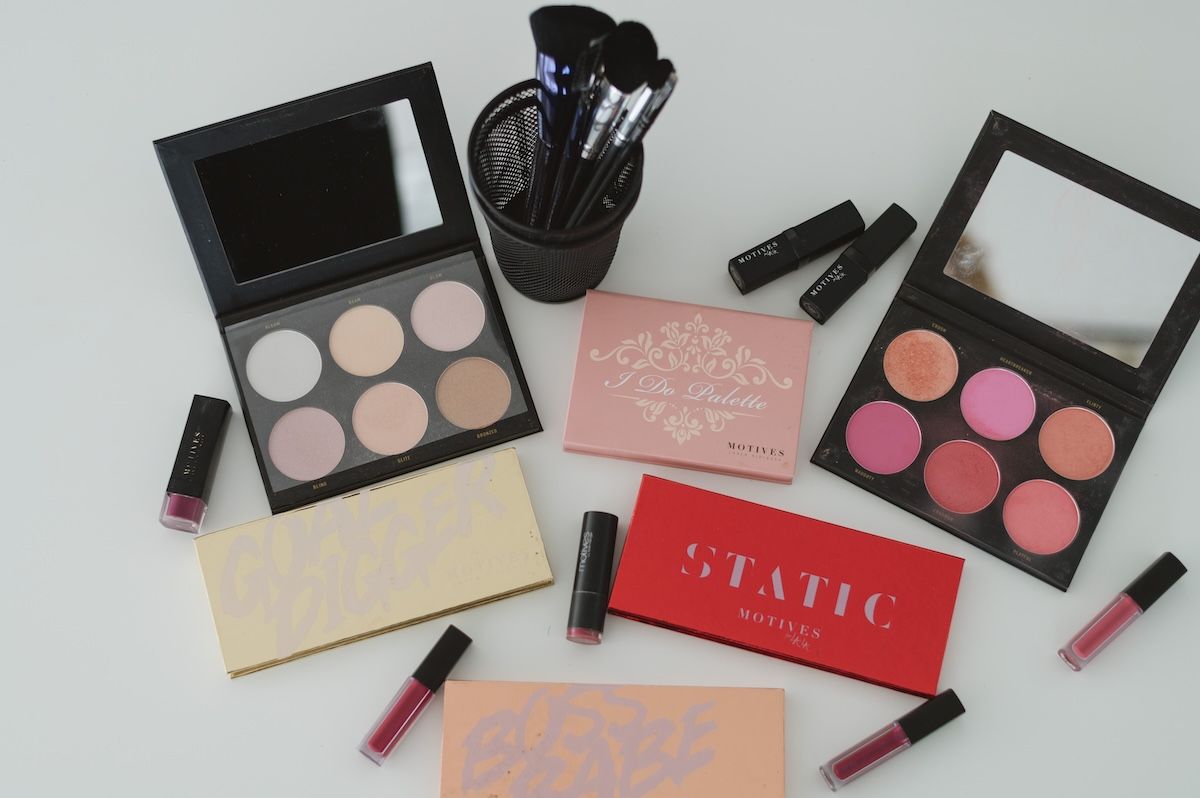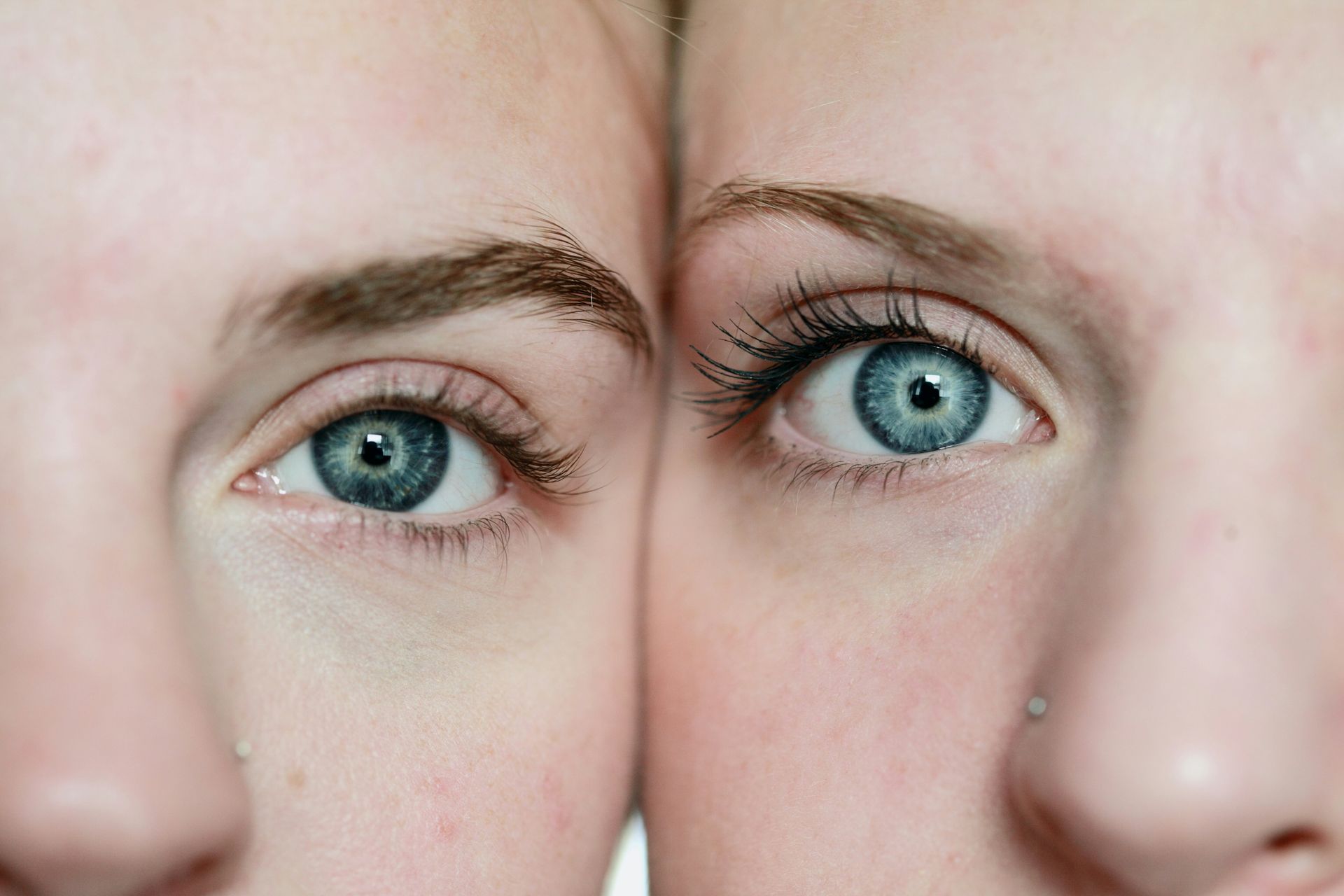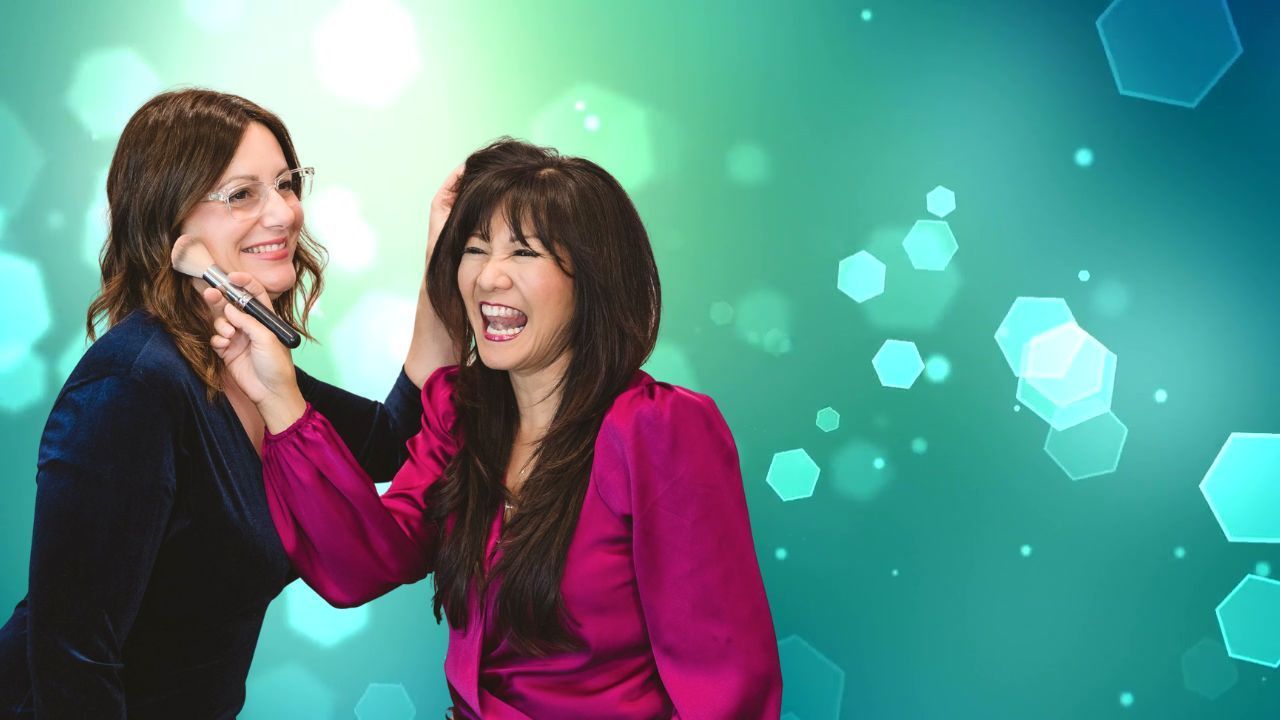11 | Beyond the Bubble Bath: Redefining Self-Care for Mental Wellness
11 | Beyond the Bubble Bath: Redefining Self-Care for Mental Wellness
Self-Care—More Than Just a Spa Day
When you think of self-care, what comes to mind? A luxurious bubble bath? A fresh manicure? A quiet night with a face mask and a scented candle? While these can be wonderful ways to relax, true self-care runs much deeper—especially for those struggling with mental health challenges.
In this episode of The Beauty Lab Podcast, hosts Velia and Monina welcome their first-ever guest, Genevieve Altwer, a licensed Marriage and Family Therapist, to unravel the real meaning of self-care. Together, they discuss how self-care can look different for everyone, why mindful self-care is essential, and how beauty and wellness routines can be powerful tools for emotional well-being.
Rethinking Self-Care: It’s Not Just About Pampering
Social media often portrays self-care as indulgent and aesthetically pleasing—bubble baths, spa days, and beauty treatments. But for individuals struggling with anxiety, depression, or PTSD, these activities might feel more like a burden than a break.
Genevieve explains that true self-care is about meeting yourself where you are. For someone in the depths of depression, simply taking a shower might be a significant act of self-care. It’s not about grand gestures—it’s about small, intentional steps that help you feel better.
✅ Self-care can be as simple as:
- Taking a deep breath before starting your day
- Setting a timer to limit social media scrolling
- Taking a short walk outside to reset your mind
- Drinking a glass of water before your morning coffee
- Self-care should feel like nourishment, not another item on your to-do list.
Mindful Self-Care vs. Avoidance: Are You Really Taking Care of Yourself?
Many people engage in what they think is self-care, but in reality, they’re just escaping from stress. Genevieve emphasizes the difference between mindful self-care and avoidance behaviors.
💡 Ask yourself: Are you watching your favorite show because you enjoy it, or are you binge-watching for hours to avoid dealing with stress?
🚫 Signs of Avoidance Disguised as Self-Care:
- Mindlessly scrolling on your phone to avoid responsibilities
- Overindulging in food, shopping, or alcohol to numb emotions
- Sleeping excessively as a way to escape stress
✅ Mindful Self-Care Looks Like:
- Engaging in hobbies that bring you joy
- Setting healthy boundaries and saying no when needed
- Taking intentional breaks that refresh you rather than drain you
The key to effective self-care is intention. Are you doing something because it truly helps you, or are you using it as a way to escape?
How Beauty and Wellness Routines Support Mental Health
Have you ever walked out of a salon feeling like a brand-new person? There’s a reason for that.
Velia and Monina, both beauty professionals, have seen firsthand how hairstyling and skincare treatments can dramatically boost a person’s mood. Clients often enter the salon feeling exhausted and overwhelmed, only to leave with a renewed sense of confidence. Genevieve explains that this transformation isn’t just about looking good—it’s about the power of human connection, self-expression, and personal care.
Why Beauty Treatments Can Be Self-Care:
💇♀️ Touch Therapy – Human touch, such as a hairstylist washing your hair or an esthetician performing a facial, promotes relaxation and reduces stress.
💄 A Confidence Boost – Seeing yourself look refreshed and put together can positively impact your self-esteem.
👩🎨 Creative Expression – Makeup, hair color, and skincare are forms of self-expression that can bring joy and a sense of identity.
💆♀️ Time for Yourself – Carving out an hour for a beauty treatment signals to your brain that you are worthy of care and attention.
Genevieve shares that something as simple as wearing a bright lipstick can have a profound effect on mood. In fact, research from programs like Look Good, Feel Better (which helps cancer patients with beauty routines) shows that small physical changes can greatly improve emotional well-being.
Breaking the Guilt: Self-Care Is Not Selfish
Many people—especially busy moms and professionals—struggle with feeling guilty about taking time for themselves. They view self-care as a luxury rather than a necessity.
Genevieve encourages a shift in perspective: Self-care is not about indulgence—it’s about sustainability. You can’t pour from an empty cup, and when you take care of yourself, you show up better for others.
💡 How to Prioritize Self-Care Without Guilt:
- Schedule self-care appointments in advance, just like work meetings.
- Remind yourself that your well-being is just as important as anyone else’s.
- Start small—five minutes of deep breathing or a short walk counts!
- Think of self-care as maintenance, not a reward.
Over time, regular self-care habits create a foundation for better mental and emotional health.
How Much Time Should You Spend on Self-Care?
One of our listeners, Kim from Cupertino, asked: "How much time should I dedicate to self-care each day?"
Genevieve’s answer? It depends on your personal needs and schedule. Some people might need 30 minutes of self-care daily, while others might dedicate an hour once a week. The key is consistency—self-care isn’t about quantity, but quality.
If your schedule is packed, even five intentional minutes can make a difference. The more you prioritize self-care, the more natural it becomes.
Final Thoughts: Making Self-Care a Part of Your Life
At its core, self-care is about respecting yourself enough to prioritize your well-being. It’s not about extravagant spa days (unless that’s what makes you happy!). It’s about doing small, consistent things that help you feel good—mentally, emotionally, and physically.
🌟 Key Takeaways:
✔ Self-care isn’t about indulgence—it’s about sustainability.
✔ Mindful self-care is different from avoidance.
✔ Beauty routines can positively impact mental health.
✔ Prioritizing yourself is not selfish—it’s necessary.
✔ Even small, consistent acts of self-care can make a huge difference.
So whether your self-care looks like a bubble bath, a fresh hairstyle, or simply sitting in silence for five minutes, make it a priority. You deserve it.
Connect with Genevieve Altwer
If you’d like to learn more about self-care, mental wellness, or book a session with Genevieve Altwer, visit genevievealtwer.com.
Genevieve is a licensed Marriage and Family Therapist specializing in depression, anxiety, PTSD, and mental health training for organizations. Her expertise in self-care and emotional well-being makes her a leading voice in helping individuals create sustainable self-care routines.




